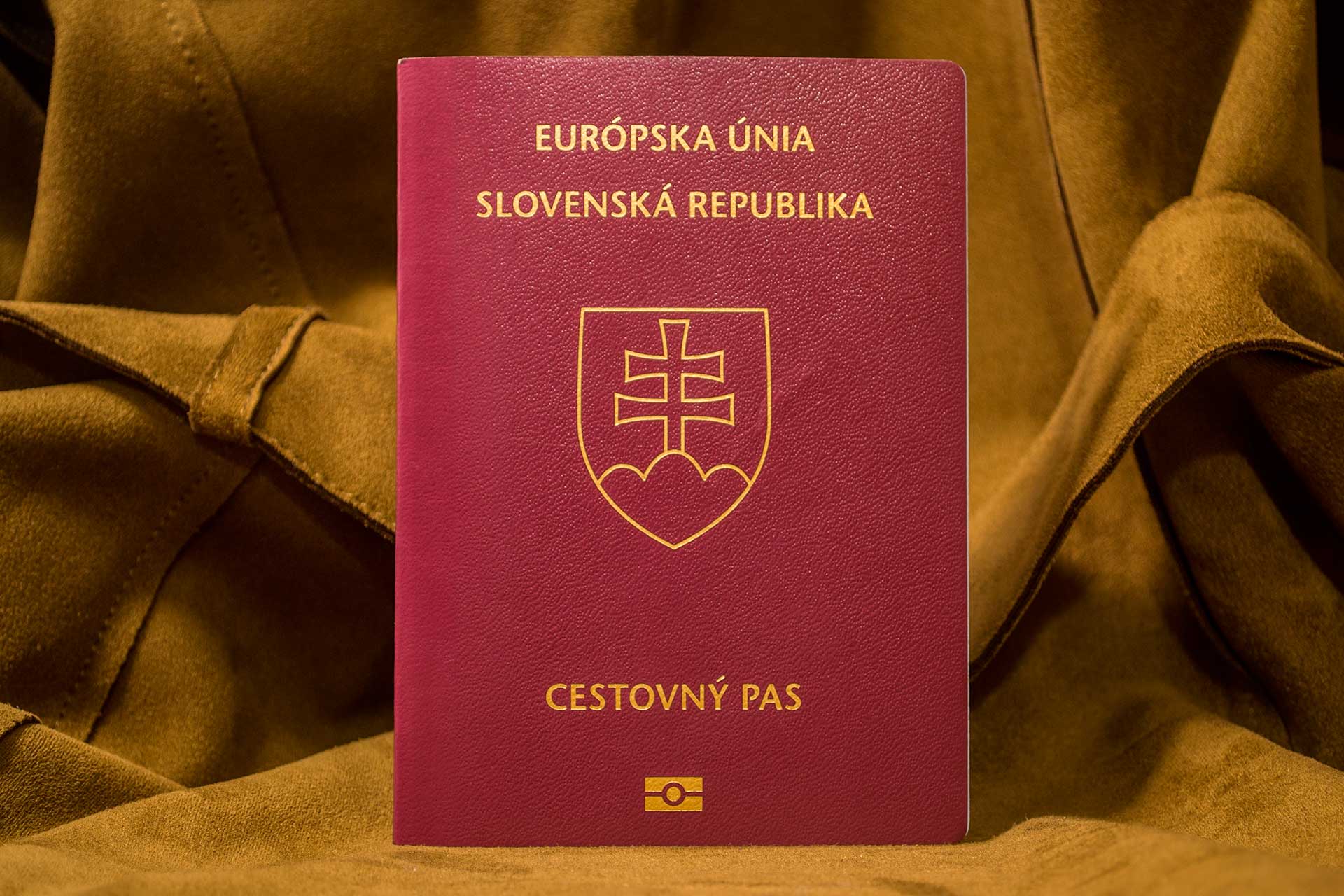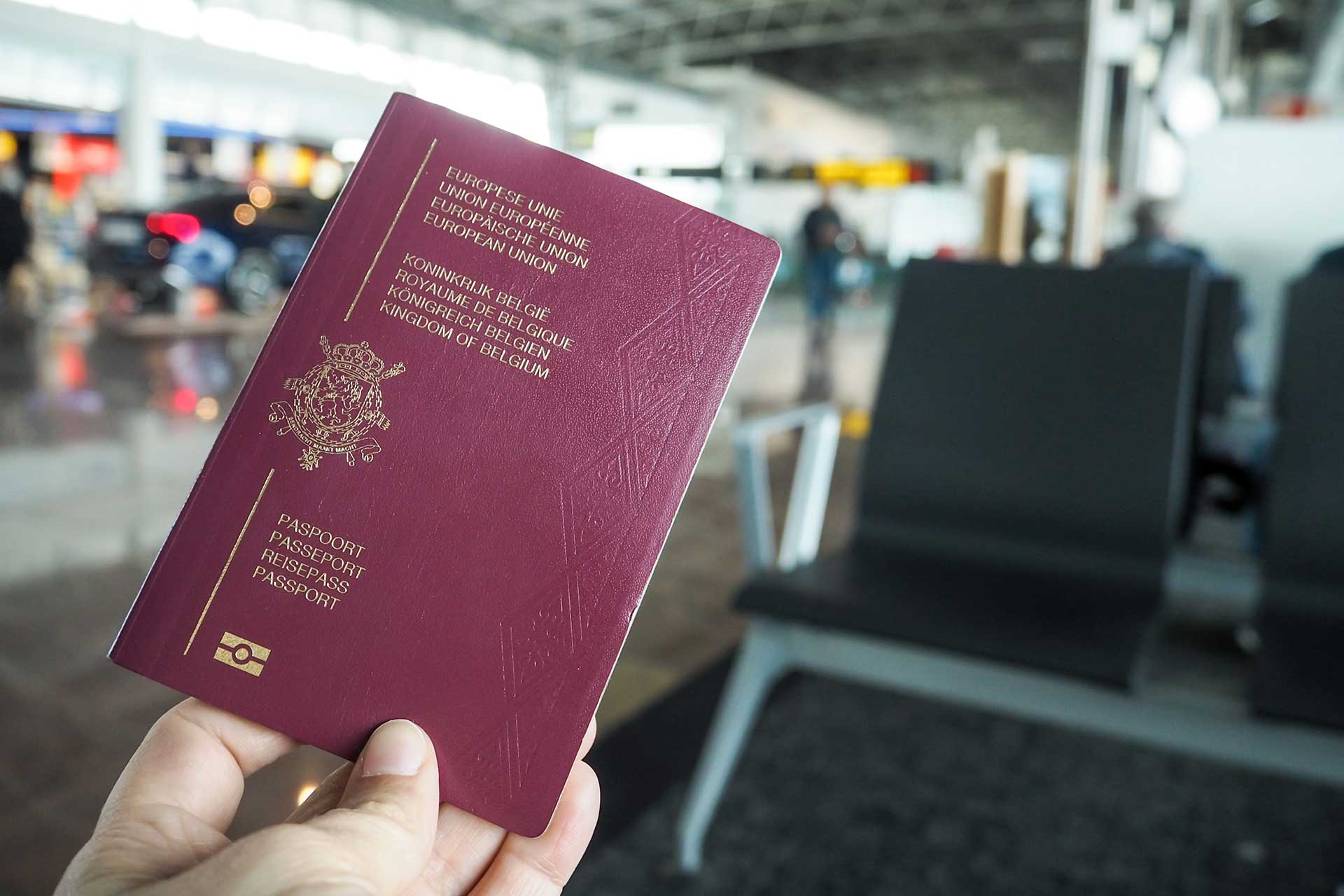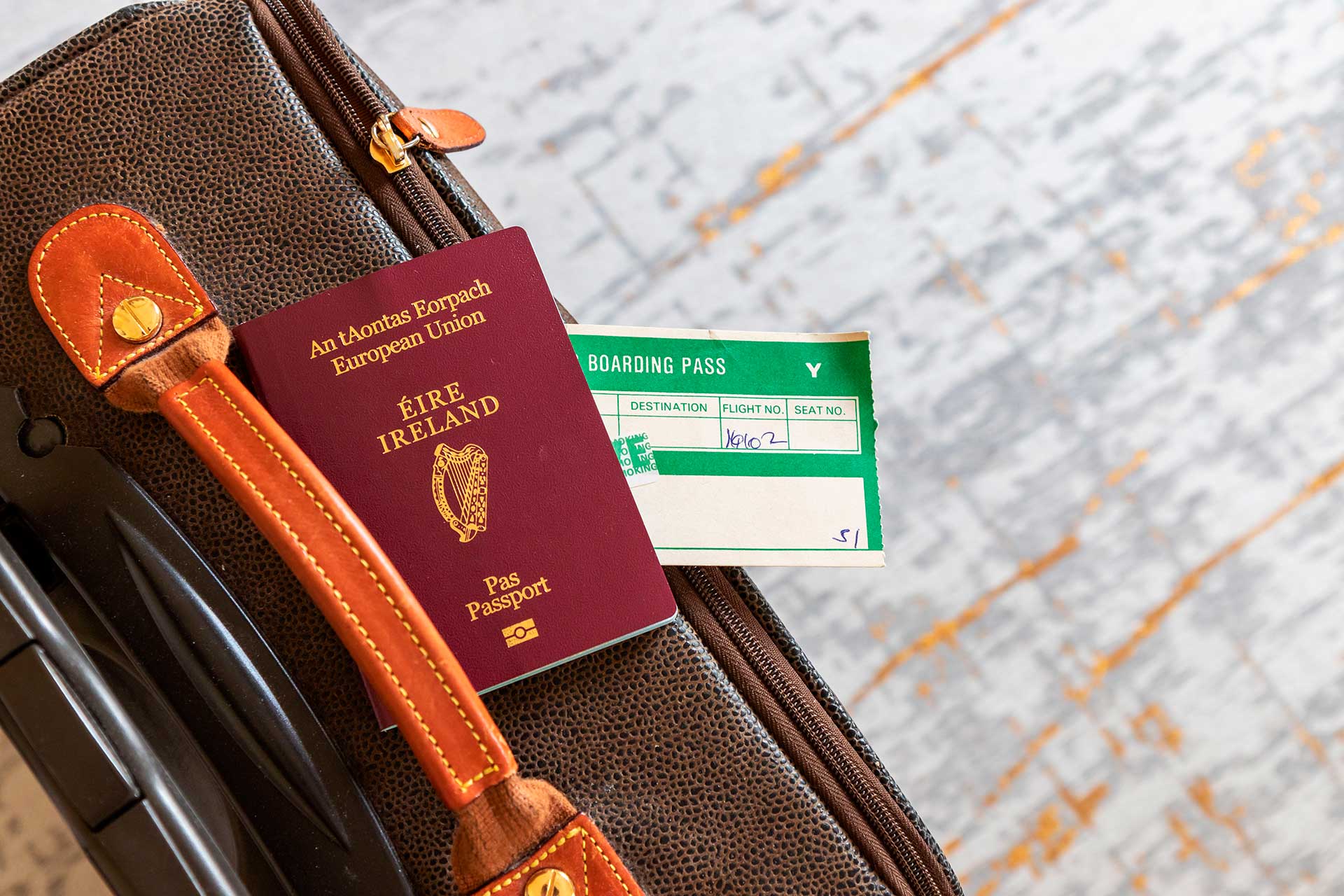- Advantages of Spanish citizenship
- The main ways of obtaining a Spanish citizenship
- Requirements and procedure for obtaining a Spanish citizenship
- How much time and money it takes to obtain citizenship of Spain
- What does not work: how you cannot get a Spanish passport
- Dual citizenship in Spain: is it allowed to have several passports?
- Where to get a second passport faster and easier: an overview of alternatives
A Spanish passport gives you access to all the rights of citizens of the European Union, allowing you to live, work, do business and receive quality education throughout the union. The country ranks 12th in Europe in terms of quality of life, while staying here is cheaper than in Italy, France, the Netherlands and other EU countries. Also, the Kingdom of Spain is on the second place in the world rating of passport strength, which allows its citizens to travel to more than 160 visa-free countries.
The issuance of a Spanish passport and the rules of immigrants' stay there are regulated by the laws “On Citizenship” and “On Foreigners”. After living on the territory of the state for 10 years, you can get a national identity card through naturalization. For refugees, the process is halved. Also, Spain is a popular destination for immigration due to the “golden visa” program, which allows you to obtain a residence permit for investment and count on EU citizenship in the future.
Advantages of Spanish citizenship
Spanish passport holders gain access to all rights in the country, including the ability to vote and be elected to parliament, as well as qualify for public office. Other benefits of citizenship include the following:
- free business throughout the EU, the ability to choose tax residency and enjoy benefits;
- access to high quality medical services (7th place in the world according to the Health Index);
- the possibility to bring close relatives within the framework of the family reunification program;
- consular assistance outside the country, social benefits, including unemployment benefits;
- access to banking services, the ability to apply for a mortgage or other loan;
- visa-free travel to more than 160 countries;
- the opportunity to live in a state with a high standard of living, security and stability;
- receiving quality education and enrollment in a European university on simplified terms with the right to apply for a scholarship, grant or other assistance.
A significant advantage of obtaining a Spanish passport for foreigners from outside the EU is the possibility to move to any country of the association for permanent residence, to get a job without unnecessary formalities. In this case, it is not necessary to obtain Spanish citizenship, because there is an opportunity to obtain a similar status under a simplified procedure in another EU country and enjoy all the privileges.
To learn the details of registration of the European passport in the shortest possible time you can during a free consultation with specialists. Legal support is a guaranteed possibility of comfortable and fast immigration to Europe.
The main ways of obtaining a Spanish citizenship
It is possible to become a citizen of Spain by descent, by choice (option) and by naturalization. In the latter case, the passport is issued if the candidate meets the condition regarding the minimum period of residence in the country. Below we will consider the key ways of obtaining a Spanish passport.
Naturalization
The process of obtaining a Spanish passport through standard naturalization, as a rule, takes 10 years, requiring first registration of residence permit, and then permanent residency. Among the most common grounds for immigration to the Kingdom are the following:
- Education. To move to Spain, you will need to provide a certificate of enrollment in an accredited educational institution. You will also need proof of funds for living expenses and tuition fees, and a health insurance policy. Minor applicants must provide permission from their parents indicating the organization responsible for the stay of a child under 18 years of age. A residence permit is issued for a period of one year with the possibility of extension until the completion of studies. The law allows the student to be employed provided that he or she works no more than 30 hours per week.
- Job search. After graduating from a Spanish university, a foreigner can apply for a residence permit to find a job or start a business. In addition to the documents of higher education, it is necessary to have the means to cover living expenses (from 600 EUR per month). The request for a residence permit can be made online through the Mercurio Initiales platform. The residence permit is valid for 24 months during which time you must find a job or establish a business. The permit is not renewable. To stay in Spain, you must change the basis (e.g., employment, business).
- Employment. To obtain a residence permit, it is necessary to have an employment contract that guarantees a salary at least equal to the national minimum wage (1134 EUR in 2025). The request for an immigration document is submitted by the Spanish employer. The period of consideration of the application is 3 months. The employee must enter the country within 3 months after receiving a long-term visa. The residence permit is issued for a period of one year or more, but it cannot expire later than the date of completion of the contract. The residence permit can be extended if the grounds are still valid.
- Self-employment. The conditions for self-employed persons to obtain a residence permit are proof of professional qualifications or experience, submission of a business plan and sufficient planned investment. If necessary, you will need to obtain a license or permit for the planned activity or practice. The residence permit is granted for a period of 12 months or more. The document can be renewed for an additional 4 years by applying 60 days before the end of the validity period of the current document.
- Family reunification. For family reunification, you must document a family relationship with a foreigner legally residing in Spain. In the case of adult children or ascendant relatives, you will have to provide proof of financial dependency. The sponsor must demonstrate that they have the means to support themselves and their family (from 800 EUR for a couple), have suitable housing and have lived in Spain for at least a year. The residence permit is issued for a period of 12 months or more with the possibility of extension, but no longer than the validity of the host's residence permit.
- Highly qualified professionals. Foreigners with a university degree and/or comparable work experience in their profession of at least 3 years can obtain a residence permit for a period of three years (or as long as the contract is valid) if they are already legally present in Spain. Otherwise, an initial permit of one year is granted at the consulate (renewable). The main condition for the granting of a residence permit is the verification of a work contract with proof of a salary that is more than 1.2 times the national average annual salary for a particular profession.
- Digital Nomad Visa (DVI). Foreigners who want to live in Spain and work remotely outside the state can apply for a DVI for a year. The DVI can be extended if you continue to be able to earn a stable income. The applicant must have a higher education or work experience in their field from 3 years, it is also mandatory to have health insurance. To obtain a visa a foreigner must prove sufficient income (from 2268 EUR in 2025). When moving with a family, 850 EUR per additional applicant and 283 EUR per each subsequent applicant are added to this amount.
- Marriage. On the basis of a marriage certificate concluded with a Spanish citizen, a foreigner can obtain a residence permit for a period of 5 years.
At the same time, a resident of the Kingdom must demonstrate a stable and sufficient income to support himself/herself and the spouse. Proof can be an employment contract, registration as a self-employed person. Foreigners who married Spanish citizens have the opportunity to obtain citizenship under a simplified scheme after a year of legal and continuous residence in the country.
Investments
Foreigners investing in financial assets or real estate in Spain can obtain a residence permit, which will be the first step in acquiring a “golden passport”.
The validity of the permit - from six months. If you are already legally in Spain, you can get a residence permit for 3 years. The decision to issue a visa is made within 10 days from the date of application. The document is extended for subsequent five-year periods, if the original conditions for its issuance are maintained. You can then apply for Spanish citizenship by standard naturalization.
The main requirement for obtaining a residence permit is proof of investment of 1,000,000 EUR or purchase of real estate in the amount of 500,000 EUR. It is also necessary to confirm the presence of a permanent income or sufficient funds to live in Spain - the minimum monthly amount is 2400 EUR in 2025, you must also add 600 EUR for each family member included in the application. In addition to the applicant, his/her spouse or unregistered partner, children, including adult children, and dependent relatives of the investor can obtain a visa.
Get EU citizenship fast and easily
Learn how to become an EU citizen through simplified programs
Requirements and procedure for obtaining a Spanish citizenship
The timeframe for obtaining a Spanish passport depends on the basis - as a rule, the procedure takes 10 years.
Among the main documents that must be submitted with the application for citizenship through naturalization are:
- an alien's NIE (Número de identidad de extranjero) or DNI (Documento Nacional de Identidad) identity card;
- passport of the country of origin;
- birth certificate;
- certificate of criminal record;
- certificate of knowledge of the culture and constitutional provisions of the country (CCSE, Constitutional and Sociocultural Aspects of Spain) and the Spanish language (DELE, Diploma de Español como Lengua Extranjera).
The documents must be submitted in the original along with an official Spanish translation. If you are applying for citizenship for a minor child under the age of 14, you will need to present the identity documents of the legal representatives and their consent. A certificate proving a sufficient level of integration, which is compulsory for school-age children, will also be required. The process of obtaining a Spanish passport consists of the following steps:
- Obtaining a visa. To stay in Spain for more than 3 months, foreigners from countries outside the EU must apply for a long-term visa. Application is made at the Spanish consulate with payment of fees (71 EUR). From the documents you will need a passport, photo, certificate of criminal record, health insurance policy. In addition, it is required to confirm the basis for the move through the submission of, for example, a certificate of enrollment in a Spanish university, employment contract. The application is considered on average up to a month. The visa can be picked up in person within 30 days of its submission.
- Relocation and registration of residence permit. Within 3 months after receiving the visa you need to enter the territory of the country and register as a temporary resident of the Kingdom by applying to the police station or the Immigration Service. The foreigner's identity card is issued by the same authority that processed the application for a residence permit. The document must be requested within one month after the registration of temporary resident status. The validity period of the residence permit is from one year (depending on the basis).
- Renewal of residence permit and registration of permanent residence permit. Temporary resident status is extended under the same conditions under which the initial permit was issued. The validity of each of the following residence permits is up to 4 years. After 5 years of residence in Spain, you can apply for permanent residency by contacting the police station. During this period, you may not leave the country for more than 6 consecutive months. Once you have been approved for permanent residence, you will be required to submit biometric data (fingerprints) for the issuance of an identity card, as well as confirm payment of the fee. The validity of the status has no time limit.
- Obtaining citizenship. After 10 years of residence in Spain (of which 5 years on the basis of permanent residence) you will have the opportunity to apply for citizenship by standard naturalization. The request is submitted online with the payment of a fee (105 EUR). You can check the status of your case through the state portal Extranjería. To obtain a Spanish passport, you will need to renounce your previous citizenship, pass an integration test, and take an oath. Acquisition of status through naturalization is recorded in the Spanish Civil Registry and you will receive a certificate.
- Applying for a passport. You can apply for a national passport at a police station or Spanish consulate if you are abroad. The personal presence of the applicant, including minors, is required to obtain the document. The application is done by appointment with the payment of a fee (30 EUR). From the documents you will need an ID card and a current photo (32 x 26 mm). If the passport is issued for minors, both parents must be present and sign the corresponding authorization. The document is produced within 3 weeks.
Obtaining Spanish citizenship through naturalization usually takes 10 years, requiring compliance with all residence permit deadlines. However, you can move to Spain with a passport from any EU country. Accompanied by lawyers, you can quickly obtain a European passport using a simplified immigration method. For example, repatriation to Slovenia takes on average 4-12 months. You can get acquainted with the details of simplified programs for obtaining European citizenship at a consultation with migration specialists.

How much time and money it takes to obtain citizenship of Spain
The time and financial costs of acquiring Spanish citizenship will depend on the chosen method of immigration. For example, obtaining status through standard naturalization has a significant disadvantage in the form of the largest investment, because the duration of the procedure will be 10 years. Next we will compare the main aspects of different procedures for obtaining a Spanish passport:
- Standard naturalization: minimum residency requirement — 10 years, cost of processing — from 380 EUR.
- Marriage to a Spanish citizen: minimum residency requirement — 1 year, cost of processing — from 230 EUR.
- Citizenship by descent: no residency requirement, processing is free of charge.
- Naturalization through investment: minimum residency requirement — 10 years, cost of processing — from 500,380 EUR (including the minimum investment threshold).
- Citizenship for refugees: minimum residency requirement — 5 years, cost of processing — from 230 EUR.
The processing costs listed above include obtaining a visa, residence permit and its extension, foreigner's identity card, permanent residence permit, citizenship and national passport. In addition, it is necessary to take into account the costs of translation and apostilization of documents (from 20 EUR per unit), language (from 112 to 219 EUR) and integration (85 EUR) exams.
In addition to permit costs, it is also worthwhile to familiarize yourself with accommodation prices. According to the analytical portal Numbeo, in 2024 the approximate spending in Spain is 715 EUR per month for one person and 2530 EUR for a family of four. Renting a one-room apartment - from 730 EUR monthly. Accordingly, when calculating exactly how much it costs to become a Spanish citizen, you will need to take into account the duration of residence in the country.
What does not work: how you cannot get a Spanish passport
The Spanish passport is one of the strongest in the world, in addition, it allows you to enjoy all the rights and privileges of citizenship of the European Union. It is not surprising that a large number of immigrants try to become owners of this document by any available means. Next, let's consider the main myths concerning obtaining a Spanish passport:
- Spanish citizenship can be bought. Some people think that a Spanish passport can be purchased for investment, but this is not true. To date, there are no programs in any European country that offer citizenship for monetary investments in the economy - you can only count on a residence permit with a possible reduction in the period of naturalization in some countries.
- Fictitious marriage to a Spaniard. Even in the case of a union with a Spanish citizen, you cannot immediately obtain a national passport, because you have to live in the country for at least a year. In addition, a fake marriage for personal gain, for example, to obtain a residence permit, entails at least a fine of 501 to 10,000 EUR for both parties.
- The birth of a child in Spain is the basis for the parents to acquire a passport. Having a child born in Spanish territory does not automatically qualify you for Spanish citizenship. This myth exists because of a misperception of the practice of “right of soil”, which exists, in the United States and some Latin American countries. Only children of foreigners without citizenship, or a child whose parents are unknown, will be able to obtain the country's national passport.
- Buying a passport through investment. Investing a large amount of money in the Spanish economy is not a basis for citizenship. Financial investments allow only to obtain a residence permit, and after that to apply for an EU passport under the conditions of standard naturalization. The myth about the possibility of acquiring citizenship through investment arises through confusion with the programs offered by some countries, such as Turkey and the Caribbean states.
Forging documents, attempting to buy them, or failing to comply with the measures associated with the authorization process risks administrative or criminal liability. Depending on the severity of the violation, Spanish authorities provide for fines of up to 100,000 EUR. Also, violation of the law may lead to expulsion from Spain and subsequent ban for him to enter the country or the entire European Union.
The most reliable and fastest way to obtain EU citizenship is to turn to international law lawyers. Specialists guarantee compliance with migration legislation and help you choose the best program for relocation. For example, you can obtain a European passport within 4 months using a simplified procedure. After that you can move to live, work and do business in any state of association, be it Spain or another EU country.
Get EU citizenship under a simplified procedure
Default Description

Dual citizenship in Spain: is it allowed to have several passports?
If you plan to obtain a Spanish passport through naturalization, in most cases you will have to give up your current national document by signing a commitment to this effect. An exception exists for immigrants from a number of states with which the Kingdom has concluded reciprocal agreements (Costa Rica, Colombia, Argentina and others). A person with dual citizenship has the same legal status in both countries, which allows, for example, to choose the place of tax residency or military service.
Having a second passport means that each country will only consider the citizen as its resident, applying the relevant laws to him. It is worth bearing in mind that Spanish citizenship can be lost if you are still using your previous status within three years of obtaining it.
Where to get a second passport faster and easier: an overview of alternatives
Many countries in the EU do not recognize second citizenship - Spain is one of them. In addition, the naturalization process for foreigners in the Kingdom lasts 10 years, during which it is necessary to issue and renew residence permits, as well as to comply with immigration laws.
According to the reviews of foreigners who have obtained the second citizenship, the easiest and fastest way to move to the European Union is repatriation. This is a simplified immigration program offered in Slovenia, Romania, Bulgaria. If you seek legal assistance, you can obtain EU citizenship in 4-14 months, after which you can move to any of the countries of the association. International law specialists will offer you an individual solution depending on your specific situation and goals, and then accompany you through the entire process: from choosing a basis to obtaining a national passport.

Mark Gartman
Migration lawyer
The lawyer of Futurepassports company, which specializes in international law. Advises on immigration issues and helps you find the best options to quickly obtain citizenship in EU countries.
“Immigration is not just a journey from one place to another, it is a journey from who you were to who you can become.”



